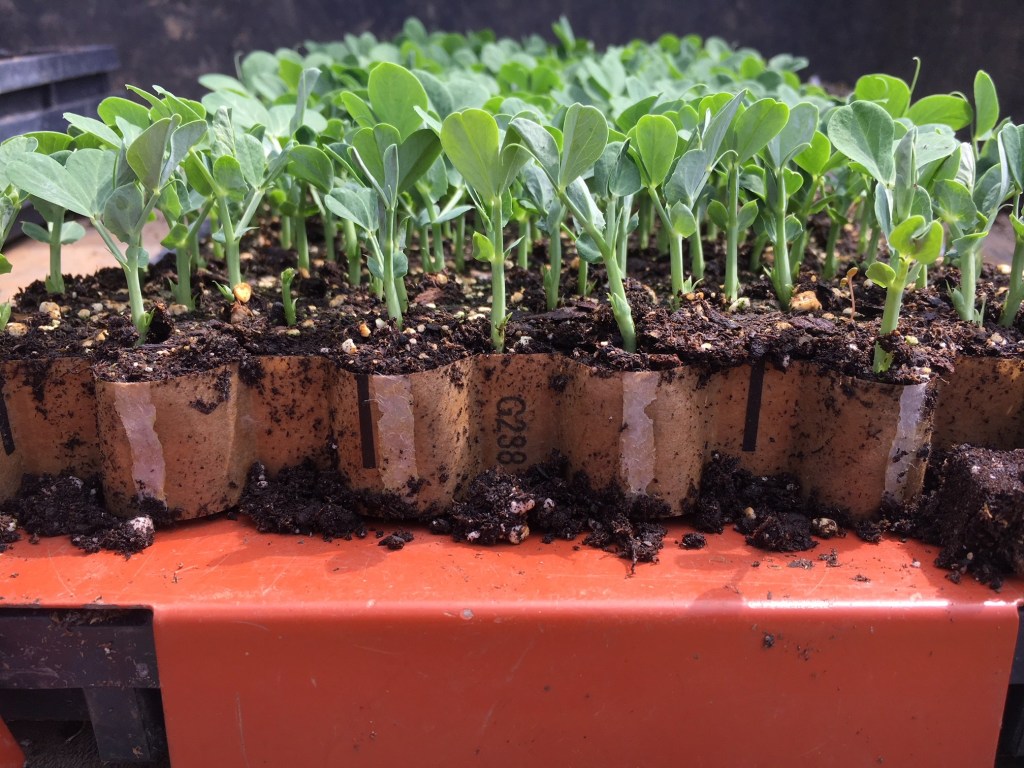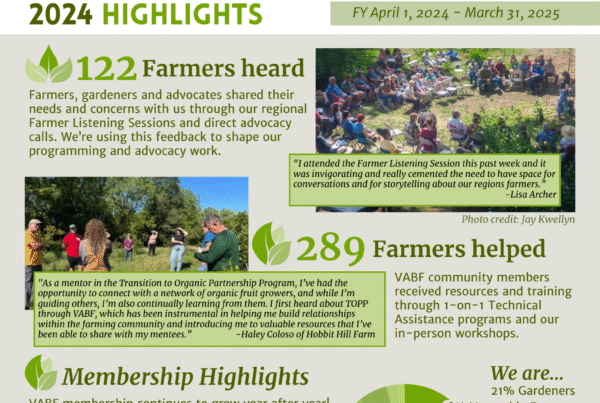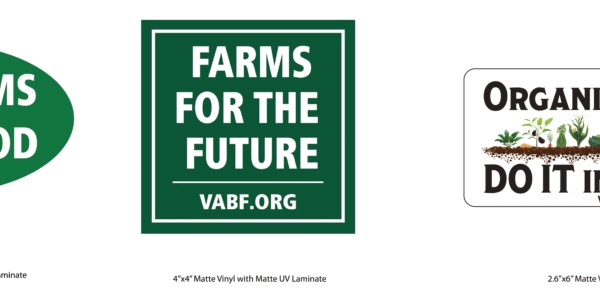Transplants in paper pots at Certified Naturally Grown certified Patchwork Farm in Copper Hill, Virginia.
In early 2018, the USDA National Organics Program (NOP) ruled that the use of paper pot transplanters would no longer be allowed in certified organic operations. NOP instructed organic certifiers to notify relevant operations that they will allow the use of paper pot transplanters for the remainder of the 2018 growing season, but that they would prohibit their use beginning in 2019.
Small Farm Works, a supplier of paper pot transplanters, along with many small farms, petitioned to overturn the ruling. In response to the petition, the National Organics Standards Board (NOSB) is reviewing the substances used in paper pots.
NOP has walked back its original ruling and is extending the use of paper pot transplanters in organic system plans until further notice. Certified Naturally Grown (CNG), a peer-review certification for direct to market farmers, will continue to allow the use of paper pots in certified produce operations.
The paper pot transplanter is a specialized tool in small-scale farming used for high-density plantings of cut greens, scallions and other row crops. They are generally used as a labor-saving alternative to direct seeding or transplanting by hand.
The pots used in these transplanters are made out of recycled, biodegradable paper held together by a synthetic binder. The binding agent in question is an acetate. Broadly, acetates are formed by the combination of acetic acid (what gives vinegar its flavor) and an alkaline, earthy, metallic, or non-metallic base. The particular acetate in question is a synthetic polymer composed of an acetic acid with a metallic base.
Over the past 12 years, various certifiers have taken different positions on the use of paper pots in organic and natural systems. In its initial ruling February 22, 2018, NOP stated, “The use of paper chain transplanting pots does not comply with the requirements at section §205.601 of the National List,” which details synthetic substances allowed for use in organic crop production.
In an update (mosaorganic.org/news-commentary/2018/update-on-paper-chain-planting-pots) sent out to organic certifiers on Nov. 12, 2018, NOP announced that they would be extending the allowed use of paper pot transplanters until NOSB is able to make a definitive ruling about their use. They elaborated that, “Any additional changes to the allowance for the use of paper pots will be communicated to certifiers to provide adequate time to make any adjustments.”

Ryan Falk of Brown Bottle Farm in Mulino, Oregon, uses a paper pot transplanter.
Further, NOP explained that it “stands by its February 2018 determination that certifiers who did not allow paper pots were correct in their decision-making” but they “recognize that many operations have come to rely on this tool in good faith” of organic standards.
If NOSB’s review of the synthetic compound in paper pots aligns with their initial ruling, NOP would once again prohibit their use. However, potential future rulings would have a longer phase-out period for operations that have been using the tool in compliance with previous organic systems plans.
Alternatively, Certified Naturally Grown will continue to allow the use of paper pot transplanters in certified produce operations. Although not a USDA organic certifier, CNG standards are based on NOP guidelines and require that growers make a full commitment to robust organic practices. CNG finds the National Organic Program guidelines to be well researched and well informed. The initial ruling on paper pot transplanters is one instance where CNG standards diverge from the NOP standards for the following reasons:
- The synthetic compound in question is inert. We have no reason to believe that it accumulates in soil or poses any risk of toxicity.
- The application of the synthetic compound in question remains in the top 2 inches of soil. We view it as akin to the use of paper mulches or newspaper, which use similar compounds as binding agents.
- Paper pot transplanters reduce growers’ reliance on non-recyclable plastics and fossil fuels, improving the overall sustainability of relevant operations.
- On some operations, the use of paper pot transplanters drastically reduces labor, which can be especially intensive for transplanting or cultivating direct seedings of densely planted crops. Many CNG growers have told us that their operations would not be viable without paper pot transplanters, as labor costs would be too high. Overall, the tool makes small, sustainable farms more economically viable.
Certified Naturally Grown’s core mission is to support its members by promoting sustainable agriculture through peer-review certification, grassroots networking and advocacy. Given the unique role of paper pot transplanters in many sustainable farming operations, we feel that their use is in line with our mission, and we will continue to allow paper pot transplanters in Certified Naturally Grown operations.
By Gareth Stacke. This article appeared in the March 2019 issue of Acres U.S.A. magazine.
Gareth Stacke is the certification specialist for Certified Naturally Grown. He is also the garden manager at Wyckoff House Museum in Brooklyn, New York, and was formerly a farm co-manager at Zenger Farm in Portland, Oregon.







